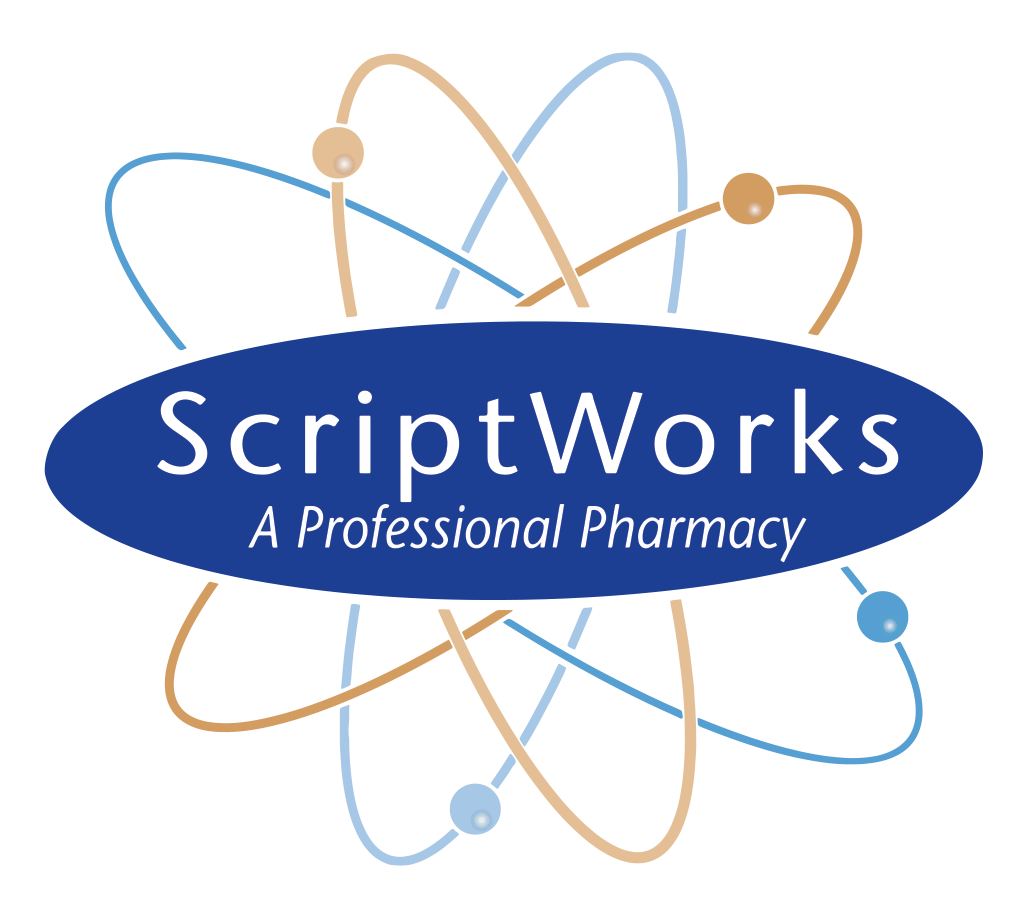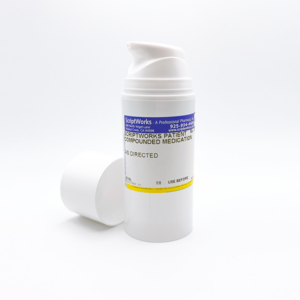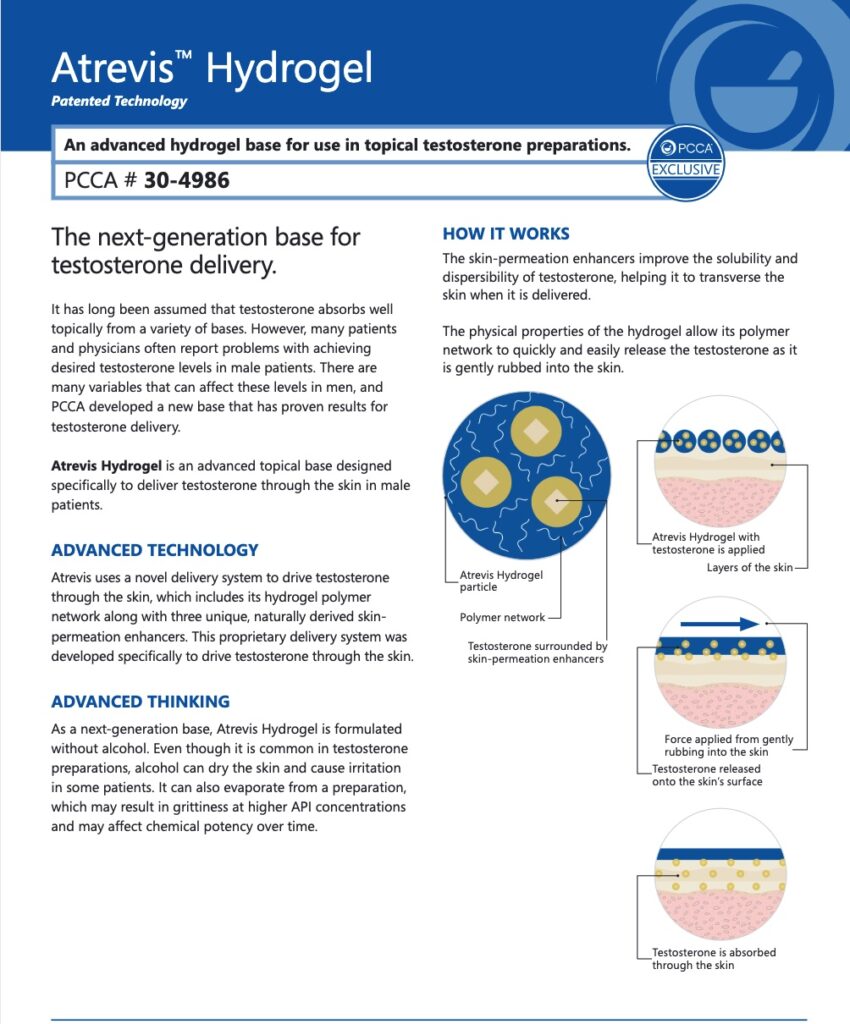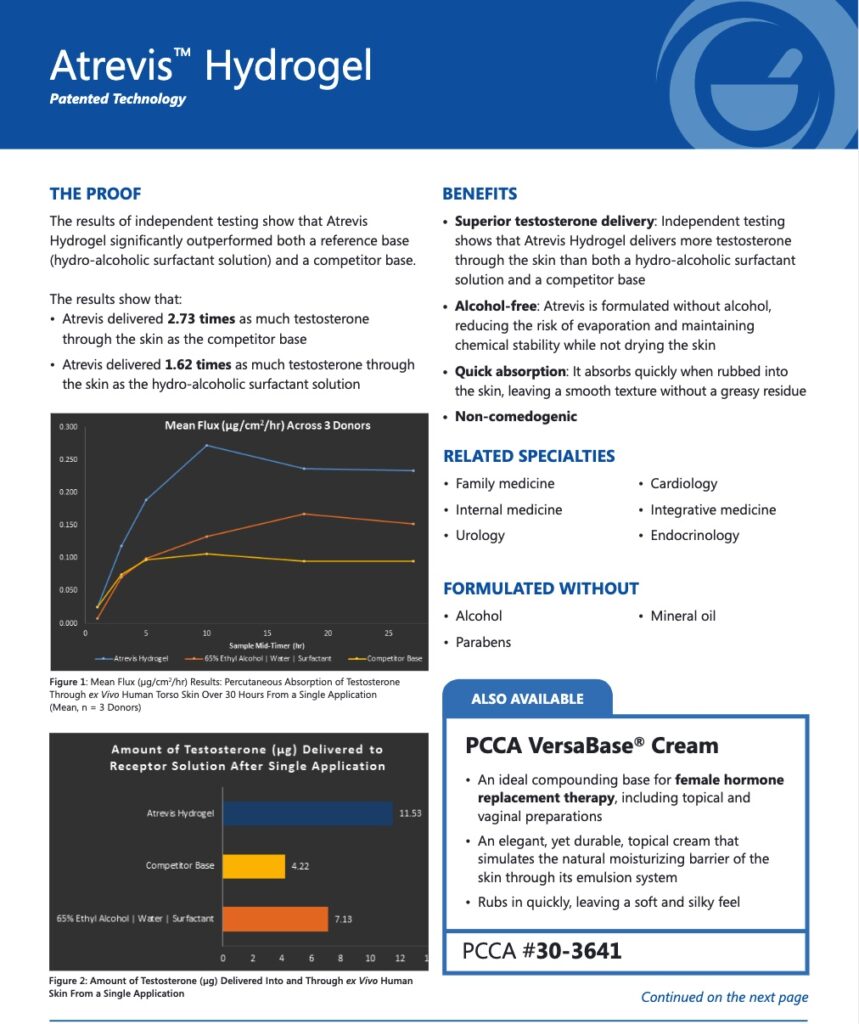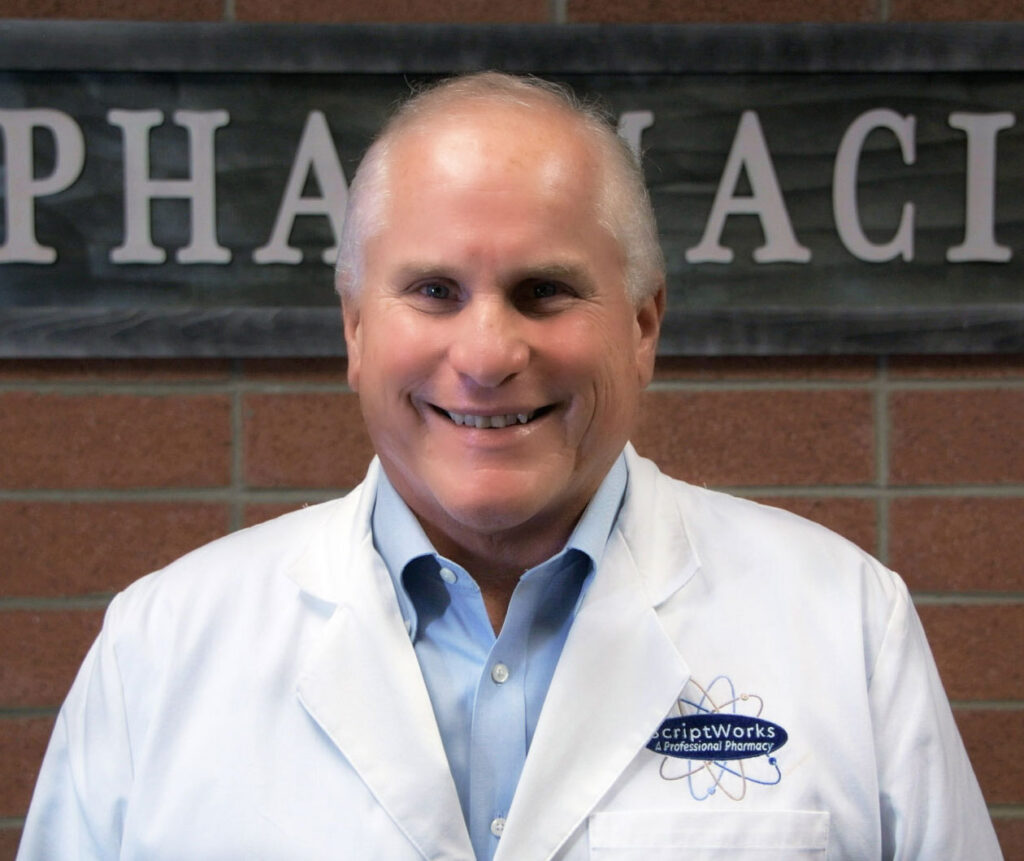
Author: Bob Brensel | President, Pharmacist | ScriptWorks
Bob Brensel, RPh, earned his Pharmacy Degree at University of the Pacific in Stockton, California in 1980. Former California Pharmacists Association’s Award Winner for Recognition of Outstanding Achievement in Compounding Pharmacy. Read More →
Bioidentical Hormone Replacement Therapy for Men
To a great degree, we are who we are because of the hormones produced in our body. From our sexuality to our physical and mental development to the state of our overall health, having our hormones working properly is vital. Hormones in the body act as a symphony — different hormones playing their own tune all together to achieve optimal health.
As we age in life, the goal of both men and women is to be nutritionally and hormonally balanced. Hormonal dysfunction can occur at any age. It isn’t exclusive to older adults. In fact, we’re now starting to see low testosterone levels in patients of younger ages.

As a compounding pharmacist, I counsel 5 to 6 patients every day about their testosterone therapy. In that brief period, I don’t have enough time to cover all the potential benefits of hormones and especially their relationship to different disease states.
In this blog, I hope to present a more comprehensive review of testosterone therapy.
Functional Approach in Medicine
We see a change in philosophy of medicine toward an approach centered on functional medicine. Instead of merely addressing the symptoms of a condition or disease, functional medicine encourages practitioners to examine the underlying cause. This new specialty of anti-aging medicine potentially uncovers why a person may suffer from depression rather than only addressing depression.
While our body’s function is dependent on a myriad of hormones, we’ll focus on testosterone in this blog.
In healthy males, 95% of the testosterone circulating in blood is made in the Leydig cells of the testes; roughly 6 to 7 mg per day of testosterone. The remaining 5% is made in the adrenal glands.
Testosterone replacement therapy has the potential to drastically improve the quality of life; however, it’s just as important to take the right dose of testosterone. Administration of excessive amounts of testosterone will suppress endogenous production and eventually lead to receptor downregulation, a phenomenon known as negative feedback. This means if you take too much testosterone, your brain will reduce its natural production to protect the body against abnormally high levels.
What Are the Potential Benefits of Testosterone?
- Builds and maintains muscle mass and strength
- Causes vasorelaxation which lowers vascular pressure
- Helps maintain a powerful immune system
- Improves mood
- Improves oxygen uptake throughout the body
- Increases lean body mass
- Lowers cholesterol
- Maintains libido
- Prevents memory loss
- Reduces body fat mass
- Regulates blood sugar
- Regulates nutrient and energy balance to maintain protein synthesis
- Regulates red blood cell production
- Sperm production
What Are the Signs and Symptoms of Low Testosterone?
- Anxiety
- Cognitive decline
- Decreased ability to concentrate
- Decreased muscle mass
- Depression
- Difficulty achieving and maintaining an erection
- Hair loss
- Hot flashes
- Increase in breast tissue
- Increase in perceived stress
- Increased risk of bone loss and bone fracture
- Infertility
- Insomnia
- Irritability
- Low sex drive
- Reduced body and facial hair
- Reduced energy
- Reduced sperm count
- Weight gain
Why Do Testosterone Levels Drop?
- Aging
- Alcohol use
- Chronic illness
- Chronic kidney failure
- Diabetes
- Disorders of the pituitary or hypothalamus gland
- Genetic disorders
- HIV
- Hypothyroidism
- Infection or injury of the testicles
- Medications like opiates, some antidepressants, anxiety medicines, some seizure medications, and some antipsychotic medicines
- Lack of exercise
- Obesity
- Other medications
What Can Happen When Testosterone Levels Are Too High?
- Chest pain or discomfort
- Cough
- Difficulty breathing
- Fast or irregular heartbeat or pulse
- Groin pain or bladder pain.
- Muscle aches
- Pain or burning with urination.
- Pain or discomfort in the arms, jaw, back, or neck
- Swelling around the eyes
- Skin rash, hives, and itching
- Sweating
- Unusual tiredness or weakness
- Anger, short tempered.
- Acne
Bioidentical Hormone Replacement Therapy for Men
We are CA's experts in compounding BHRT
- Testosterone Injectables
- Intramuscular injections
- Subcutaneous injections
- Topical creams/hydrogels (Atrevis™ Hydrogel)
Clomiphene Citrate
Clomiphene citrate provides an oral dosage form that may help increase testosterone levels in hypogonadal males.
Clomiphene belongs to a class of drugs called estrogen receptor antagonists and has the potential to increase serum testosterone levels in men. For patients with secondary hypogonadism, Clomiphene helps restore physiological endogenous testosterone secretion while maintaining testicular volume and, potentially, spermatogenesis. In clinical trials conducted, these drugs demonstrated significant efficacy in the physiological restoration of testosterone levels in males with secondary hypogonadism.
Clomiphene Citrate may be an option for younger males wanting to raise their testosterone levels without completely reducing their fertility as seen without injectable testosterone therapy.
The Hormone Experts of the East Bay: ScriptWorks Pharmacy
If you have any questions about anything discussed in this blog, please reach out to info@scriptworksrx.com. We would be happy to discuss any concerns or issues you may have about hormone therapy.
Every patient is different, and not every patient responds the same way to BioIdentical Hormone therapy. It’s best to make an informed decision and then discuss it with your practitioner.
